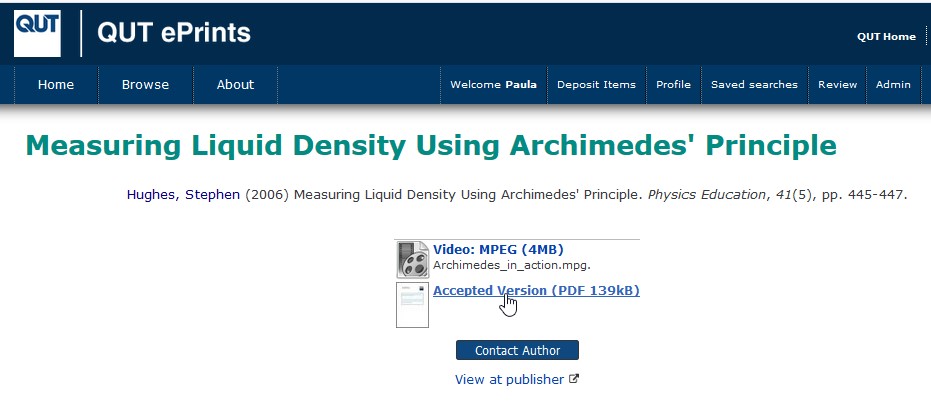In partnership with the QUT Office for Scholarly Communication, QUT STEM High School Engagement has produced this guide to help you find Open Access (OA) research for teachers and students.
Using this guide will help you quickly and easily narrow your search and explore other opportunities through the QUT Library, making you a more effective researcher.
What is Open Access?
Open Access (OA) refers to research articles which are made freely available to everyone. Most universities now have an ‘institutional repository’ (or storage centre) where both freely available and restricted research outputs are stored.
The general public can access these freely available research outputs. For example, QUT ePrints provides free online access to over 50,000 items, all of which can be used by the general public. Though, sometimes finding the right article or research paper can be confusing or difficult.
Follow the below tips as we help you search for Open Access research outputs, making your research process easier.

Option 1: General Search Engines (e.g Google)
The most common starting point is using a general search engine such as Google. This will give your search very broad results, which is great at the beginning of the research phase, but may also include restricted articles. This can be a bit frustrating when you locate a perfect article only to find that a password is required to access it.
How to do a general research search:
- In the search box, enter your keywords or phrase. For example: Using Archimedes’ principle to measure liquid.

- The results include 481,000 hits, though an item from QUT ePrints is near the top of the list. Clicking on the search result takes you to the record in QUT ePrints.

- Here you will find a video and the open access version of the article, which was originally published in ‘Physics Education’, but you can download as a PDF.

Note: The ‘View at publisher’ link takes you to the publisher’s version but, in most cases, a password will be required to do this.
Option 2: Searching within a university open access repository
This option will give you a more defined set of results, and allows you to filter your search by open access sources. While the results may not reach 481,000 like in Google, you will have more chance of finding a research output you can use.
How to search the QUT Open Access Repository:
- Go to the QUT ePrints home page
- Click on the ‘Advanced search’ option. This will open a search form. If you know the title of what you are looking for, enter it in the 'Title' field. Or for a broad search enter a few terms in the 'Full Text' field.

- To just show Open Access results, select the following full text availability:

- Click search.
- Scroll down the list to see if any items look suitable. Clicking on the hyperlinked title will take you to the download-able document.

Tip: If the results set is too large to browse, it is a good idea to order the results by number of downloads. This will bring the most popular items to the top of the list.

Option 3: Searching within the Directory of Open Access Journals (DOAJ)
If you still haven't found what you are looking for, DOAJ includes links to nearly 5 million open access research articles.
- From the home page, click on ‘Search’ on the top toolbar

- Then click on the ‘Articles’ option to search for articles on a specific subject.

- Select ‘Keywords’ then enter your subject terms in the search box.
- Now click on the search button to run the search.

- When you find an article of interest, click on the Full-Text link to open the document.


QUT Library Schools’ Program
Did you know that free QUT Library borrowing memberships are available to teachers and school students? In addition to being able to access selected databases within the Library (which are available to all visitors), membership allows you to borrow books and other hardcopy items from the Library. The Library also offers workshops that assist secondary school students develop research skills for their current and future studies and a range of free online learning support resources.
Contact us
If you have any questions contact QUT Faculty of Science Engagement via email engage.science@qut.edu.au.